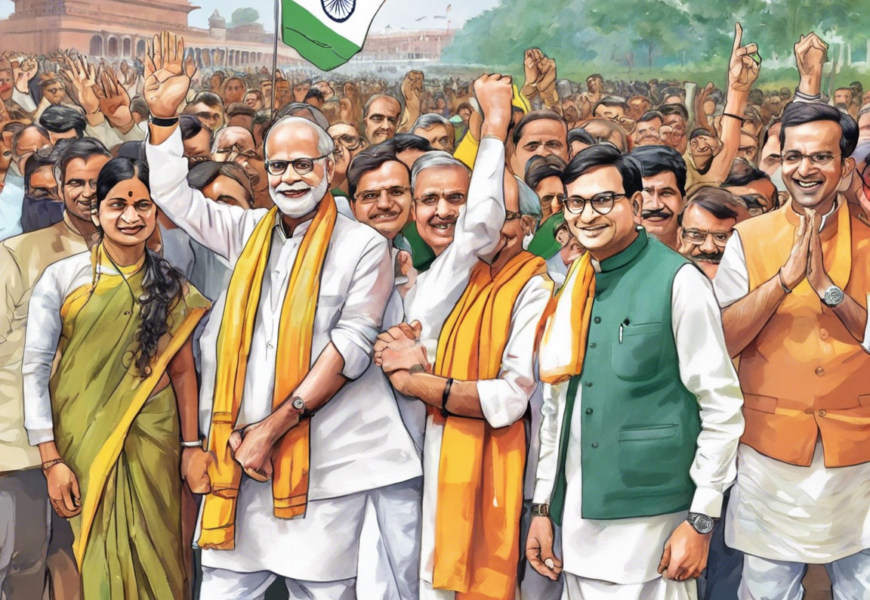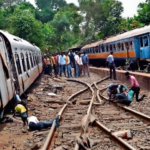Introduction
The Lok Sabha Election is the cornerstone of India’s democratic process, where citizens exercise their right to vote and choose their representatives in the Lower House of the Parliament. The Lok Sabha Election 2024 is anticipated to be a significant event that will shape the country’s political landscape for the upcoming years. In this ultimate guide, we will delve into all aspects of the Lok Sabha Election 2024, including key dates, major political parties, important issues, and more.
Important Dates
-
Election Schedule: The Lok Sabha Election is usually held every five years unless dissolved earlier. The Election Commission of India announces the schedule, including the dates for polling and counting.
-
Nomination Filing: Candidates interested in contesting the election need to file their nominations within a specific timeframe.
-
Polling Days: The polling is conducted in multiple phases across different constituencies to ensure a smooth and orderly voting process.
-
Counting of Votes: The votes cast by the citizens are counted, and the results are declared on a designated day.
Major Political Parties
-
Bharatiya Janata Party (BJP): The ruling party at the Centre, known for its Hindutva ideology and strong leadership.
-
Indian National Congress (INC): One of the oldest political parties in India, with a legacy of freedom struggle and secularism.
-
Aam Aadmi Party (AAP): Emerged as a significant player in Delhi, known for its anti-corruption stance and welfare-oriented policies.
-
Samajwadi Party (SP): A regional party with influence in Uttar Pradesh, focusing on social justice and inclusive governance.
-
All India Trinamool Congress (TMC): Dominant in West Bengal, known for its regional nationalism and welfare schemes.
Key Issues
-
Economic Growth: The performance of the economy, creation of jobs, and inflation are critical issues that influence voters.
-
Social Welfare: Access to healthcare, education, and social security programs are essential for the well-being of the population.
-
National Security: Border disputes, terrorism, and internal security play a crucial role in shaping electoral discourse.
-
Climate Change: Environmental conservation, sustainable development, and disaster management are gaining prominence in electoral debates.
Campaign Strategies
-
Mass Rallies: Political leaders conduct rallies and public meetings to connect with voters and convey their message.
-
Social Media: Digital platforms are extensively used for campaign promotions, reaching out to a wider audience.
-
Door-to-Door Campaign: Candidates and party workers engage in door-to-door campaigns to interact with voters at a personal level.
-
Advertisements: Television, radio, print media, and online advertisements are deployed for wider visibility and outreach.
Voter Education and Awareness
-
Voter Registration: Encouraging eligible citizens to register themselves as voters to participate in the electoral process.
-
Voter Awareness Programs: Conducting workshops, seminars, and outreach activities to educate voters about their rights and responsibilities.
-
Ethical Voting: Promoting ethical voting practices, discouraging malpractices like vote-buying and coercion.
-
Importance of Voting: Emphasizing the significance of each vote in shaping the future of the country and democracy.
Frequently Asked Questions (FAQs)
-
When is the Lok Sabha Election 2024 expected to be held?
The Lok Sabha Election 2024 is likely to be held in the first half of the year, following the Election Commission’s schedule. -
How can I check if I am registered as a voter?
You can verify your voter registration status online on the Election Commission of India’s official website by entering your details. -
What documents are required to vote in the Lok Sabha Election?
A valid voter ID card or any other government-issued photo identity proof is essential to cast your vote. -
Can NRIs (Non-Resident Indians) vote in the Lok Sabha Election?
NRIs are not eligible to vote in the Lok Sabha Election unless they are physically present in their respective constituencies on the polling day. -
What is NOTA in the voting process?
NOTA (None of the Above) is an option provided to voters to reject all the candidates contesting in their constituency if they do not find them suitable. -
How are the election results declared?
The election results are tabulated based on the votes cast, and the candidate receiving the highest number of votes is declared the winner in a constituency. -
Can a citizen vote in a constituency where they are not a resident?
No, a citizen can only vote in the Lok Sabha Election in the constituency where they are a resident and registered as a voter. -
What is the role of the Election Commission of India during the election process?
The Election Commission of India is responsible for conducting free, fair, and impartial elections across the country and ensuring compliance with electoral rules. -
Is there any provision for absentee voting in the Lok Sabha Election?
Absentee voting is currently not allowed in India, and voters are required to cast their votes in person at their designated polling stations. -
How can I get involved in election monitoring or volunteering during the Lok Sabha Election?
You can reach out to local NGOs, civil society organizations, or the Election Commission to inquire about opportunities for election monitoring or volunteering in your area.
In conclusion, the Lok Sabha Election 2024 holds immense significance for the future trajectory of India’s governance and democracy. As responsible citizens, active participation in the electoral process, staying informed about key issues, and exercising our right to vote judiciously are vital for a vibrant and robust democracy.




